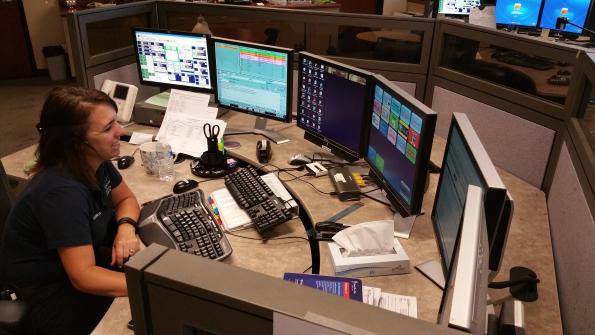Report: Reforming emergency dispatch won’t be easy, but it’s necessary
Over the last several years, reforming law enforcement has been a primary topic of discussion in communities across the nation. Discourse has mostly centered around the challenges agencies face in addressing the complex needs of those in mental health crisis, and the disparity of experience among community members depending on their race.
But in this investigation, dispatchers, who are usually the first emergency services touchpoint those in crisis connect with, are oftentimes considered in tandem with other public safety agencies even if they act independently or don’t have the same amount of influence.
“We find ourselves with a 911 system that is under-resourced, under-staffed, not understood by the general public, not well positioned to nimbly adapt to future needs and, as a result, often ill equipped to adequately triage and deploy resources to ensure the right response is dispatched at the right time,” reads a report published Wednesday, “Transform 911: Blueprint for change 2022,” by the University of Chicago’s Health Lab. The Chicago university launched Transform 911 in 2020 in collaboration with other stakeholder organizations.
Along with administrative and financial challenges related to reforming systems, the telecommunication field isn’t as respected as other public safety professions. Telecommunicators don’t hold the same clout, even within the system.
For example, “a 911 dispatcher, who witnessed Mr. Floyd’s murder in real time through live surveillance footage, contacted a police supervisor to express concern and reported, ‘You can call me a snitch if you want to[;] . . . all of them sat on this man,’ and noted that the officers had failed to report that they were using force and to request the presence of a supervisor, which was in violation of departmental policy,” the report says.
The intervention effort wasn’t successful, highlighting that “911 professionals are often, as was the case here, unequipped to intervene when the downstream handling of a call is inappropriate and dangerous.”
To read the complete article, visit American City & County.

















